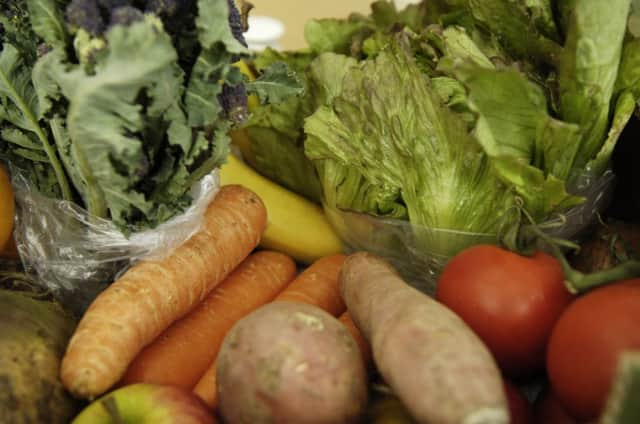Fruit and veg pesticides can halve sperm count


Scientists demonstrated a link between the chemicals, sprayed on to crops to prevent damage by insect pests, and reduced sperm count and quality.
A study of 155 men found that those who ate the most fruit and vegetables with high pesticide residue levels had a 49 per cent lower sperm count than those who consumed the least. They also had 32 per cent fewer sperm than normally formed.
Advertisement
Hide AdAdvertisement
Hide AdWhile the American nutritionist who led the research suggested switching to organic produce, other scientists said the findings should be treated with caution.
Leading British fertility expert Professor Allan Pacey, from the University of Sheffield, said: “This is a very interesting paper that raises the possibility that pesticide residues in our food may be a contributory factor in male infertility, at least in some men.
“The idea has been raised before, but to my knowledge this is the first paper that has investigated this question in a systematic way. That said, whilst the results are tantalising, they should be interpreted with caution as the study is not without its flaws and limitations.” The study involved analysing 338 semen samples taken from 155 men attending a US fertility centre between 2007 and 2012 as part of an ongoing investigation into environmental effects on reproduction.
Participants were aged between 18 and 55 and all were from couples planning to use their own eggs and sperm for fertility treatment.
Through a food questionnaire, the men were asked to give details about their diets. Fruits and vegetables were categorised as being high, moderate or low in pesticide residues based on data from the US Department of Agriculture.
Among those in the “high” category were apples, pears, peppers, spinach and strawberries. “Low” residue foods included peas, beans, grapefruit and onions.
Men with the highest intake of pesticide-heavy fruit and vegetables – at least 1.5 servings per day – had an average total sperm count of 86 million sperm per sample, compared with 171 million for those whose consumption was lowest. The percentage of normally formed sperm averaged 7.5 per cent in the lowest intake group and 5.1 per cent in the highest.
Low to moderate residue levels did not appear to affect quality, according to the results published in the journal Human Reproduction.
Advertisement
Hide AdAdvertisement
Hide AdConsumption of fruit and vegetables with low pesticides was significantly associated with having more sperm that was normally formed.
Study leader Dr Jorge Chavarro, assistant professor of nutrition and epidemiology at the Harvard T.H. Chan School of Public Health in Boston, said: “These findings should not discourage the consumption of fruit and vegetables in general. In fact, we found that total intake of fruit and vegetables was completely unrelated to semen quality.
“This suggests that implementing strategies specifically targeted at avoiding pesticide residues, such as consuming organically grown produce or avoiding produce known to have large amounts of residues, may be the way to go.”
The authors acknowledged limitations to the study, including the fact men attending fertility clinics may not be representative of the population. Almost half the men taking part in the research had at least one semen characteristic below reference limits set by the World Health Organisation.
FOLLOW US
SCOTSMAN TABLET AND MOBILE APPS